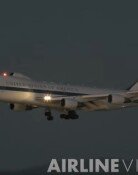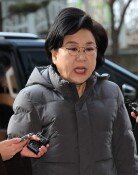US Nat`l Security Council urges NK to stop provocations
US Nat`l Security Council urges NK to stop provocations
Posted December. 22, 2010 10:28,
There are things North Korea must know. Before mentioning the resumption of the six-party talks, the North must stop its provocative and risky behavior and prove the seriousness of its intent to denuclearize the country. In this sense, it would be better for Pyongyang not to test the will of South Korea and the United States.
So said the spokesman of the White House National Security Council, Mike Hammer, in an exclusive interview with The Dong-A Ilbo Monday at the Eisenhower Executive Office of the U.S. presidential mansion.
Responsible for reporting news on national security and foreign relations to U.S. President Barack Obama, Hammer said, After all, the choice depends on whether North Korea can show behavior that shows it will abide by the promises it made to the world and become a responsible member of the international community, and the U.S. is paying attention to this.
On New Mexico Gov. Bill Richardsons visit to Pyongyang, Hammer said the White House and diplomatic and security lines make policy decisions based on verified facts, not North Koreas comments relayed through news reports.
If the North has something it wants and measures to implement, it can convey its stances to us through permanent dialogue channels in New York, he said, adding, If Richardson returns home, he will report on his visit to the State Department. The White House has no plans to be directly briefed by him.
The following is excerpts from the Dong-A interview with Hammer.
Q: South Korean forces conducted another firing drill on Yeonpyeong Island and North Korea threatened retaliation to the exercise, saying it will turn the South into a sea of nuclear flames.
Hammer: We keep in close touch with Seoul in real time to deal with urgent security situations. We are not only sharing information on the situation that is unfolding but are also being briefed on what will happen on the Korean Peninsula in the future. South Korea has carried out a military drill in its territorial waters in a very clear and transparent manner. The latest firing drill was absolutely needed to make proper preparation for a military situation in the future.
The exercise was also intended to brace for military threats that undermine peace and stability on the Korean Peninsula. What is most important is that both the U.S. and international society want peace and stability in the region and the denuclearization of the Korean Peninsula is clearly the shared interest of all.
Q: At a recent foreign ministers meeting of South Korea, Japan and the U.S., measures to resume the six-party talks were discussed.
Hammer: We urged the North at the meeting to prove its seriousness in returning to dialogue. Before the resumption of the six-party talks, the North must stop its provocative and risky behavior. The North Korean nuclear issue is one of the top policy priorities of President Obama.
Q: Has President Obama ever expressed his feelings on the North?
Hammer: When President Obama took office, he said he would make relations with the North different from those under the previous administration. Wed like to emphasize that North Korea still has an opportunity. This means that if the North keeps its promises and becomes a responsible member of the international community, the country can lift itself from an extreme isolation.
Unfortunately, the North isnt taking that path. This isnt a matter of the U.S. presidents personal feelings or animosity against a regime. What matters is the behavior the North should show as a member of international society. Its a matter of the will and seriousness of the North to be recognized by international society and this is the U.S. principle in pursuing North Korea policy.
Q: Does this mean President Obama can step forward to have dialogue with the North if the communist country changes its behavior?
Hammer: There is no need to go ahead. Lets see if North Korea stops its belligerent behavior and shows a constructive one. After that, we can make decisions.
Q: What are the prospects of ratification of the free trade agreement between South Korea and the U.S.?
Hammer: When the new congressional session begins next year, the issue will be the most important agenda item. President Obama has made ratification the top priority and will pursue congressional approval soon.
Q: Describe the job of National Security Council spokesman.
Hammer: The job entails waging a battle against a constant stream of news 24 hours a day. The moment I begin work is not arriving at my office but the moment I hear news transcending time and space and devise countermeasures. But I sometimes enjoy freedom abroad a plane with the president.
triplets@donga.com







